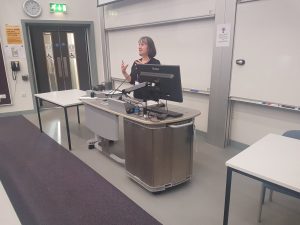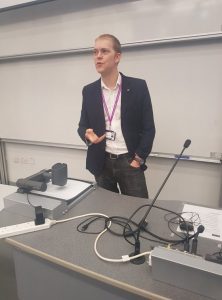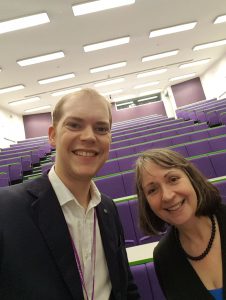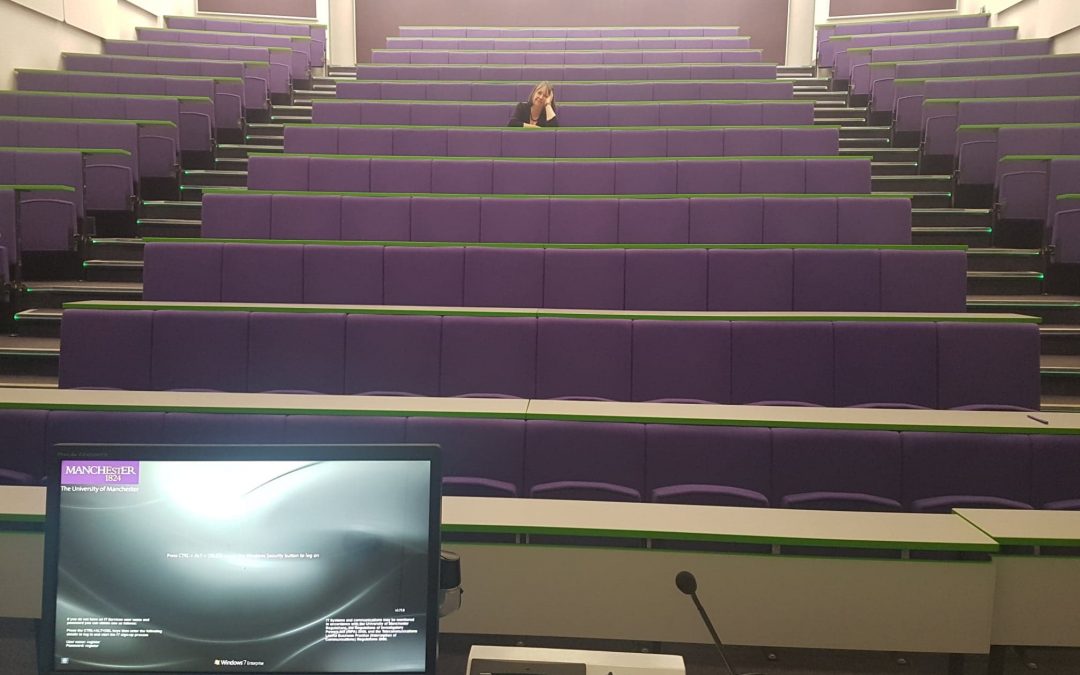In this series of blogs entitled ‘Behind the Scenes’ we’re going to show you a little bit about how our distance learning courses are created, and about the people and institutions which support their creation.
Here at Manchester we teach a lot of Egyptology online. In fact, we have the biggest suite of online (distance learning) Egyptology programmes in the world. And we’re in the process of expanding even further.
Fr om September 2019, we’ll be launching the world’s first online MA Egyptology programme. This will also coincide with our move from the Faculty of Biology, Medicine and Health, to the Faculty of Humanities and our new colleagues in the Department of Classics, Ancient History and Archaeology (which will be renamed the Department of Classics, Ancient History, Archaeology and Egyptology).
om September 2019, we’ll be launching the world’s first online MA Egyptology programme. This will also coincide with our move from the Faculty of Biology, Medicine and Health, to the Faculty of Humanities and our new colleagues in the Department of Classics, Ancient History and Archaeology (which will be renamed the Department of Classics, Ancient History, Archaeology and Egyptology).
Setting up a distance learning programme is a lot of work – most of which must be done up-front. When the students arrive, lectures have to have been written, recorded, edited and uploaded, and discussion boards and forums have to have been written and set up. These and a myriad of other details go into making sure that distance learning students have as many benefits and as rewarding an experience as students on a face-to-face course.
This week we began one of the most time-consuming stages of the process in earnest: recording lectures. Rather than using a small podcasting suite or sound booth, we have chosen to record our lectures in a lecture hall, using the University of Manchester’s video recording capabilities. From surveys conducted among our student cohort, we have come to realise just how important it is for distance learning students to feel connected to the university in which they study. And one way many of them feel connected is by seeing their lecturers in their ‘natural habitat’ (as one student put it) – e.g. talking in a lecture hall, rather than seated in front of a webcam.
We received tremendous help and support from the University’s Media Services Department as we worked to adapt the University’s existing video recording capabilities to suit our programmes. This has involved learning how to edit using Filmora9, learning how to download and upload to Vimeo and embed videos to Blackboard, as well as knowing which video formats contain what information and their compatibility – not an easy task for technophobic academics!
But we think that the results will be worth it, and we hope that our future students will benefit from them! Over the next few months we will be recording even more lectures (eventually, the MA Programme will contain nearly 150 hours of lectures and podcasts entirely written and recorded from scratch), and we hope to be back with another update from behind-the-scenes soon!








Recent Comments